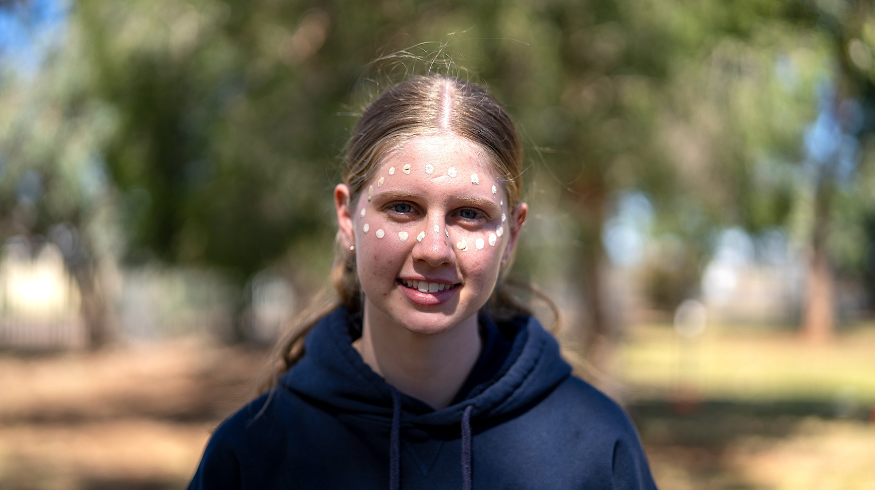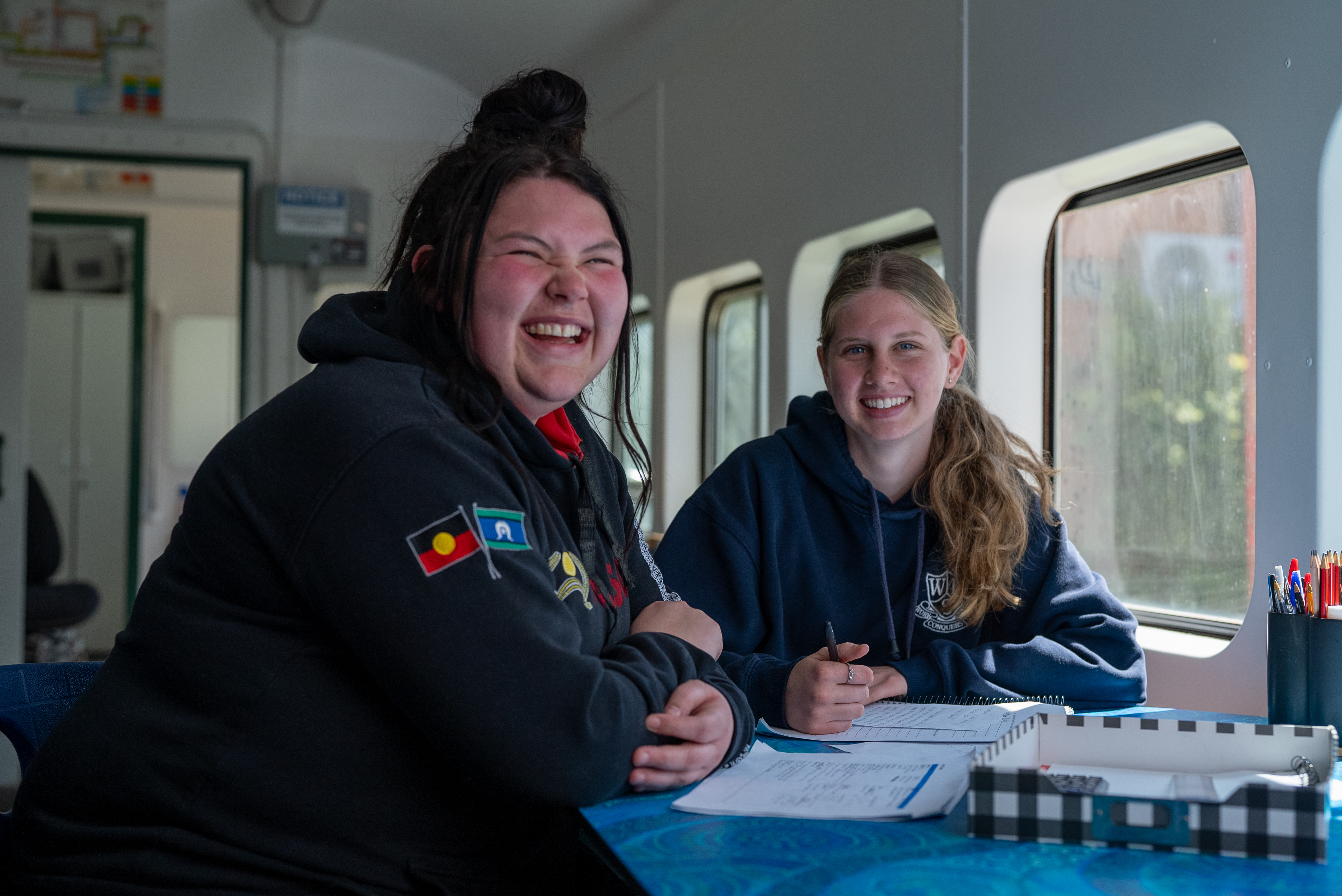Everyone belongs somewhere

Through NASCA, Georgia has learned that who you are is about so much more than what you look like. It's about connecting to your Culture and finding your place in the world.
“When I first found out I was Indigenous it didn’t make any sense to me because of the way I looked,” says 16-year-old Wiradjuri woman Georgia.
“It was the colour of my skin.”
When Georgia joined NASCA’s Young Women’s Academy at Wellington High School in year 7 it had only been one year since she had learned the truth about who she was and where she came from.
“My Mum was taken away and adopted. When I was in year 6 she looked for her family, and that’s when she found out about her Mum and where she came from. She went through a very tough time, so I was just trying to be there for her,” says Georgia.
Georgia was still struggling with her identity when she joined NASCA but says she found comfort and connection with NASCA staff.
“The NASCA girls treated me the same as everyone else and helped me find out more about my Culture.”
“NASCA has taught me about who my Mob are, and all the different Indigenous Countries in Australia. We’ve done painting and played Traditional Indigenous Games. I got to go to Garma and see how kids up there share and celebrate their Culture. I wouldn’t feel as connected to my Culture if NASCA wasn’t here,” says Georgia.

Many young Indigenous people face bullying, racism, and discrimination, which can be particularly tough to deal with during those high school years, but those with lighter skin can often face discrimination from their Indigenous peers as well.
“It was a big learning process, not just for Georgia but for Wellington. Because a lot of the kids out here are darker-skinned there is this idea that you have to be a certain colour to be black, so it wasn’t just about educating Georgia, it was about educating her peers as well. NASCA is an inclusive program, no one needs to be a certain colour to be ‘black’,” says NASCA Team Leader Lakesha Hedger.
For Georgia, finding her path to connect to her Culture has helped her gain a sense of identity and in turn, she has become more confident and self-assured.
“When she first came into the program she was quite reserved, quite shy, but she’s forced herself to take on every opportunity we give her. She catches the NASCA bus in the morning which has improved her attendance, she has built her confidence by coming on excursions. She’s grown her connection to not only her Culture, but her community and peers, and she’s learned to let her guard down and show her vulnerability. It’s beautiful,” says Lakesha.
As of today, Georgia has been a part of NASCA for four years, in that time she has found a sense of belonging that has seen her flourish.
“It’s important I know who I am and NASCA helped with that, sometimes I still feel bad because of the colour of my skin, but NASCA is always there for me, helping me,” says Georgia
“I just keep telling Georgia it is ok to belong to both worlds, it’s a journey that you’re on, and we’re going to support you on that journey, you’ve just got to be yourself,” says Lakesha.
“Everyone belongs somewhere, and that’s what NASCA has given me.”
